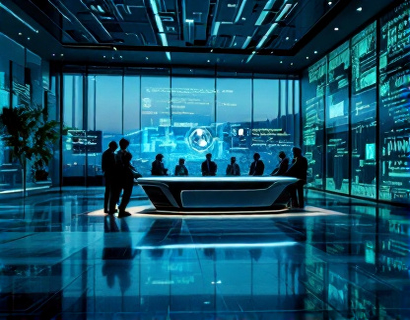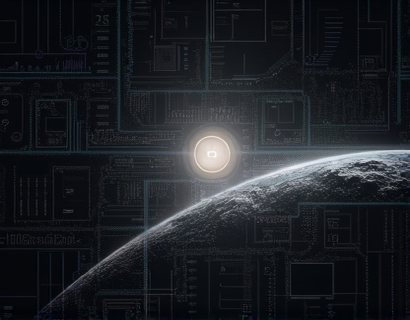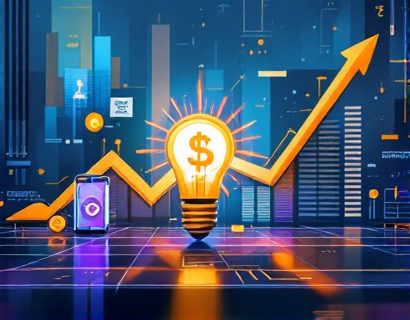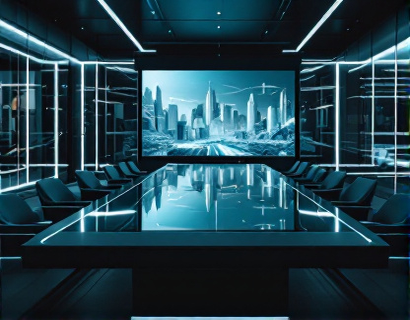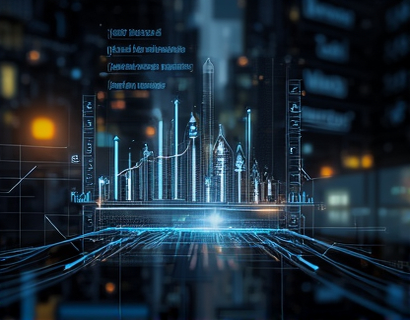Elevate Your Restaurant: Expert Management Software for Streamlined Operations and Enhanced Customer Experiences
In the competitive world of dining, restaurant owners and managers face numerous challenges that can impact the success of their businesses. From managing staff schedules and inventory to ensuring a seamless dining experience for customers, the tasks are diverse and demanding. To navigate these challenges effectively, adopting expert management software is crucial. This powerful tool is designed to streamline internal operations and enhance external customer interactions, ensuring that every aspect of restaurant management is optimized for efficiency and satisfaction.
Streamlining Internal Workflows
One of the primary benefits of implementing expert management software in a restaurant setting is the significant improvement in internal workflows. The software centralizes critical data and processes, allowing staff to access information quickly and efficiently. For instance, a well-structured scheduling system ensures that staff are allocated to shifts based on their availability and skill sets, reducing no-shows and overstaffing. This not only optimizes labor costs but also ensures that the restaurant is always well-staffed when needed.
Inventory management is another area where the software excels. By integrating with point-of-sale systems, the software tracks inventory levels in real-time, automatically generating orders for replenishment when stock falls below predefined thresholds. This reduces the risk of stockouts and overstocking, ensuring that the kitchen always has the necessary ingredients to prepare menu items. Additionally, the software can provide insights into sales trends and ingredient usage, helping managers make informed decisions about menu engineering and cost control.
Enhancing Customer Experiences
Just as important as streamlining internal operations is enhancing the customer experience. Expert management software offers tools that directly contribute to creating memorable dining experiences. For example, a robust reservation system allows customers to book tables effortlessly, with options for special requests and notes for the staff. This not only improves customer satisfaction but also helps manage table turnover, maximizing revenue from each seating.
Table management is another critical feature. The software can track table statuses, from available to occupied, and alert staff when a table is ready for the next reservation. This ensures that customers are seated promptly, reducing wait times and increasing the likelihood of repeat visits. Moreover, the software can integrate with digital menus and ordering systems, allowing customers to browse and place orders directly from their tables. This not only speeds up the ordering process but also reduces errors, enhancing the overall dining experience.
Optimizing Staff Coordination
Effective staff coordination is vital for the smooth operation of a restaurant. Expert management software provides tools that facilitate better communication and collaboration among staff members. For instance, a built-in messaging system allows staff to communicate in real-time, whether it's coordinating kitchen orders, addressing customer issues, or sharing important updates. This immediate line of communication helps resolve problems quickly and ensures that everyone is on the same page.
Task management is another key feature. The software can assign tasks to specific staff members, set deadlines, and track progress. This ensures that all responsibilities are clearly defined and completed on time. For example, a server can be assigned to take a table's order, while a bartender is tasked with preparing special drinks. The software can send reminders and notifications to ensure that tasks are not overlooked, improving overall efficiency.
Data-Driven Decision Making
One of the most significant advantages of using expert management software is the access to comprehensive data and analytics. The software collects and analyzes various data points, providing insights that can inform strategic decisions. For instance, sales reports can highlight the most profitable menu items and peak dining times, allowing managers to optimize menu offerings and staffing levels accordingly. Customer feedback and rating data can be used to identify areas for improvement, such as service quality or cleanliness, ensuring that the restaurant continuously enhances its offerings.
Moreover, the software can generate detailed performance metrics for different departments, such as kitchen efficiency, table turnover, and customer satisfaction. These metrics help managers identify strengths and weaknesses, enabling targeted improvements. For example, if the data shows that a particular shift has higher customer complaints about wait times, the manager can investigate and implement solutions, such as adjusting staff schedules or improving order processing systems.
Enhancing Operational Efficiency
Operational efficiency is crucial for maintaining profitability in the restaurant industry. Expert management software contributes to this by automating routine tasks and providing streamlined processes. For instance, automated reporting features eliminate the need for manual data entry and compilation, saving time and reducing errors. Managers can generate reports on various aspects of the business, from financial performance to staff attendance, with just a few clicks.
Another area of efficiency is energy and resource management. The software can monitor and control energy usage, such as lighting and HVAC systems, based on the restaurant's operating hours and occupancy levels. This not only reduces utility costs but also contributes to a more sustainable operation. Additionally, the software can optimize the use of resources, such as water and cleaning supplies, by providing usage analytics and suggesting conservation measures.
Improving Customer Engagement
In today's digital age, customer engagement extends beyond the physical dining experience. Expert management software can help restaurants build stronger relationships with their customers through various engagement tools. For example, a loyalty program integrated into the software can reward repeat customers with points or discounts, encouraging them to return. The software can track customer visits, purchase history, and preferences, allowing for personalized offers and promotions that enhance customer loyalty.
Social media integration is another feature that can boost customer engagement. The software can connect the restaurant's social media accounts, enabling staff to post updates, promotions, and customer testimonials directly from the platform. This not only keeps the customer base informed but also fosters a sense of community and brand presence online.
Ensuring Compliance and Safety
Maintaining compliance with health and safety regulations is non-negotiable in the restaurant industry. Expert management software can help ensure that all necessary protocols are followed. For instance, the software can track employee health and vaccination records, ensuring that staff meet the required standards. It can also manage food safety certifications and training records, sending reminders for renewals and updates. This helps prevent violations and potential fines, protecting the restaurant's reputation and operations.
Moreover, the software can facilitate cleanliness and hygiene monitoring. Managers can set checklists for daily, weekly, and monthly cleaning tasks, assigning them to specific staff members. The software can track completion statuses and generate reports to ensure that all hygiene standards are met. This not only ensures a safe dining environment but also demonstrates the restaurant's commitment to customer health and safety.
Scalability and Flexibility
As a restaurant grows or changes, its management needs evolve. Expert management software is designed to be scalable and flexible, adapting to the unique requirements of different establishments. Whether a small, family-owned diner or a large, multi-location chain, the software can be customized to fit the specific workflows and processes of any restaurant. This flexibility ensures that the software remains a valuable asset as the business expands or adopts new strategies.
Additionally, the software can integrate with other business systems, such as accounting and CRM tools, creating a seamless ecosystem of data and processes. This integration further enhances efficiency and provides a holistic view of the business, enabling more informed decision-making.
Conclusion
In conclusion, expert management software is an indispensable tool for modern restaurants looking to optimize operations and enhance customer experiences. By streamlining internal workflows, improving staff coordination, and providing data-driven insights, the software helps restaurants achieve efficiency and satisfaction across all aspects of management. As the dining industry continues to evolve, embracing such technology is not just a competitive advantage but a necessity for long-term success.












